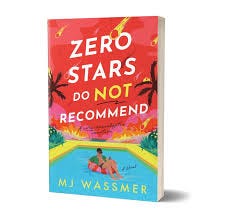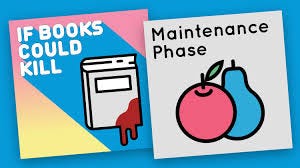Welcome to my new subscribers! I’m re-sharing a revised version of this essay from last year as an introduction/refresher of a key concept from my book, Autonomy-Supportive Parenting: Reduce Parental Burnout and Raise Competent, Confident Children. My mission is to help all of us find true autonomy in an environment of overwhelming stress and external demands. As I write in my book signings, “Autonomy for all!”
The other morning, I pulled up my Amazon page to see if there were any new reviews. I scrolled to find a 4-star lengthy review that started with what the reader liked about the book. But when I got to the “why I didn’t give it 5 stars” part, I read this:
“[The section] descends into essentially anything goes. Kids need structure. Kids need to understand values. Kids need to learn that in the real world there are consequences to maladaptive behaviors, and that learning needs to start at home, and the parents are responsible for imparting those lessons. (By the by, if your child stabs another child with the intent to seriously harm him or her then canceling the birthday party is only part of the appropriate response.)”
The child stabbing was in response to my example of not canceling a child’s birthday party to address a problem behavior. That’s bananas and I would never be like, “well if your child stabs someone with intent to harm, they shouldn’t have any consequences.” A birthday party would be the least of the concerns in that scenario!
But I want to address the interpretation that autonomy-supportive parenting means “anything goes” in favor of discarding structure, values, and consequences. I hope this was an extreme example of a misreading of my book, but I can see how it might be easy to confuse supporting autonomy with not having limits.
Honestly, it took me a few weeks of researching and writing about autonomy-supportive parenting to wrap my head around the expansive meaning of autonomy. Most people seem to immediately associate autonomy with freedom and independence. To have autonomy is to do what you want. Under this definition, a child who doesn’t want to clean their room just doesn’t. Or a child who would rather stay home from school and play video games gets to do just that.
In reality, having appropriate limits is not only critical for raising healthy children, but essential for nurturing autonomy.
I once gave a talk to parents at a high school about how to use autonomy-supportive parenting strategies to boost their children’s internal motivation for school. In the Q&A period, the discussion centered on the audience members’ ambivalence about letting go of controlling responses because “kids need limits and consequences.”
Despite having included examples of maintaining limits and using consequences as part of autonomy-supportive parenting throughout the talk, this fear of raising children without limits dominated the discussion. The Amazon reviewer mentioned above had allegedly read my entire book and yet complained that “kids need structure” and values to learn from parents. I wanted to scream into the reviewer void, “I said that throughout the entire book!”
Undoubtedly, I would benefit from examining the flaws in my messaging and how I can refine it to communicate more effectively. I also wonder, however, if parents have some blinders on that aren’t allowing my message to infiltrate.
Maybe it’s the current trend in parenting guidance that disavows consequences and other behavioral tools, priming any critic of parenting guidance to see that part of the message and ignore the rest. Maybe autonomy is simply a complicated construct that we think we understand better than we do.
Regardless of the why, I want to be clear with my all-time favorite audience—my Substack subscribers—that autonomy-supportive parenting requires limits and structure.
Autonomy does include independence and freedom. But in a deeper reading of the literature on autonomy, it also encompasses responsibility and recognizing the rights of others. According to one of the pioneers of self-determination theory, Edward Deci, “Limits encourage a sense of responsibility.”
In relationships, being autonomous means knowing your own boundaries – and the boundaries of others. Thus, respecting the rights of others comes with true autonomy. All of this is far from “anything goes.”
In my book, I developed a continuum of parenting based on the research literature. This continuum includes varying degrees of freedom and limits. On one end lies permissive parenting, which is what people seem to be confusing with autonomy-supportive parenting. Permissive parenting refers to parenting children with a high degree of freedom and little structure (no bedtimes and ice cream for dinner—all the time). On the other end of the continuum is controlling parenting, which refers to low levels of freedom and inflexible, rigid structure.
Right in the happy middle, autonomy-supportive parenting blends flexible structure with freedom that is tied to responsibility. Like my children and their phones: they do not have time limits on their phones as long as they demonstrate fulfilling responsibilities (school work, chores, etc.)
As I also repeatedly remind all of us in my book and whenever I have the chance, each child is different. Each child will thrive with a slightly different formula of structure and freedom. The magic in parenting comes from finding the balance of freedom and structure that offers healthy limits while supporting each unique child’s autonomy.

Fortunately, I discovered the following review on Goodreads, which gave me some faith that I haven’t totally failed in my messaging:
“Such a great book - I would put this, "how to talk to kids so they'll listen and listen so they'll talk", and "how to raise kids who aren't assholes" as my all time top 3 parenting books. It's really cautious about making black and white claims, while providing a flexible framework for helping our kids discover who they are, what their values are, and develop internal motivation to accomplish what is important to them (which may be different from what parents think is important, which is ok!).”
All-time top 3 parenting books?? On the same list as one of my fave writers, Melinda Wenner Moyer? I’ll take it! (I know – I need to stop reading reviews.1 But it’s like trying to stop eating the entire bucket of popcorn. Impossible.)
In the Media
My interview with BoyMom author, Ruth Whippman on on Psychologists Off the Clock came out this week. As a mother of a boy who has never referred to herself as a Boy Mom, reading Ruth’s book and talking to her have changed how I think about the construct of masculinity. Our young men are undoubtedly drifting into risky places right now and all of us need to be part of caring for our boys and these young men better—for the sake of all genders.
How I’ve Been Relaxing (and Restoring)
My version of personal autonomy includes enjoying consuming all kinds of pop culture — from books to shows to podcasts. My soul has needed light, laughter, and warm fuzzies so today I’m sharing what has brought me all of those things. If it has made me laugh out loud, it’s on the list.2
I hope you can find some light, laughter, and warm fuzzies this week, too.
In parenting solidarity,
Emily
A quick plug here for writing a review on Amazon or Goodreads if you’ve read my book — these truly do help sell books! It would be an easy way to show support if you are so inclined. If anything, a 5-star rating (no review needed) is also nice.
The way to make these images cluster all together in a nice cohesive way was cutting off all the images and making them look funky so my list isn’t as aesthetically pleasing as I had hoped.








I think there's a lot of confusion about terms like freedom and autonomy in our culture, generally speaking. And a lot of fear of what might happen if we back off being highly controlled. I see this all-or-nothing thinking a lot in religious contexts when it comes to deprioritizing rules.
I think when parents say “but kids need limits and consequences", what they really mean is that they think kids need punishment. This is something I've noticed from a lot casual conversations with other parents about discipline. The idea that a kid's behaviour must be shaped, at least in part, with negative reinforcement, like a lab rat, is pervasive. They don't think it counts as a "consequence" otherwise.